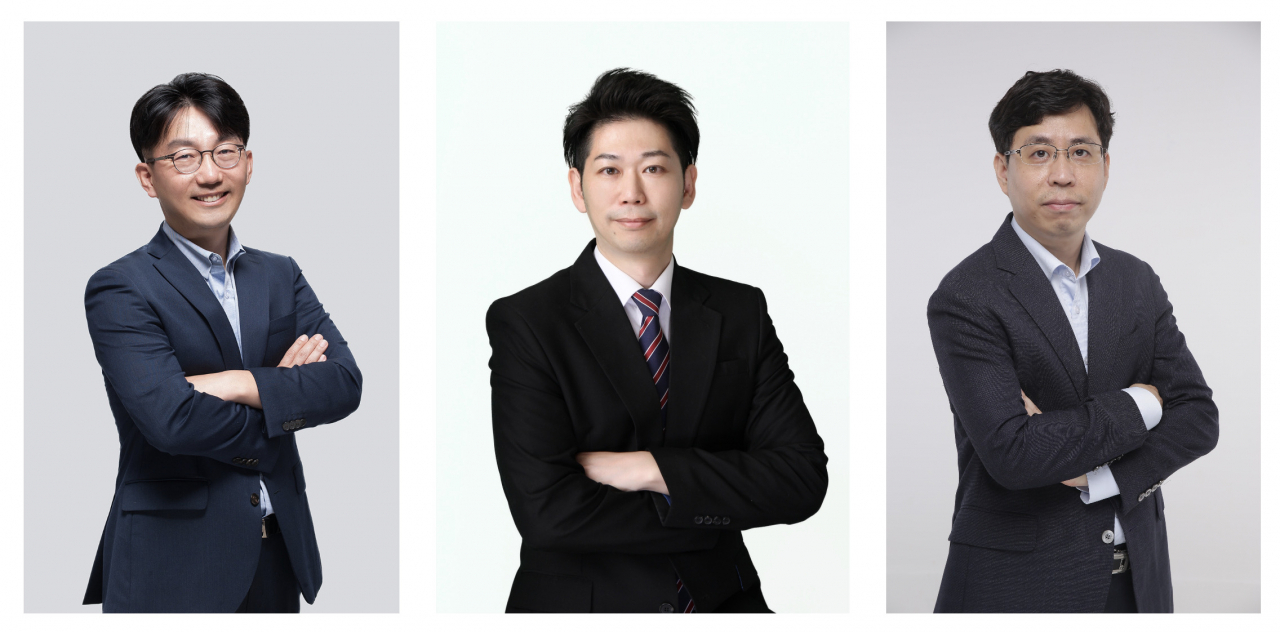 |
From left: Lim Sung-hoon, general partner of venture capital firm D3 Jubilee Partners, Ebihara Hideyuki, managing partner of venture capital firm PKSHA Capital and Kim Ji-chul, chief executive officer of Bigbang Ventures (Courtesy of Lim Sung-hoon, Ebihara Hideyuki and Kim Ji-chul) |
Venture capital houses have long found themselves leaning toward startups that offer business models featuring technologies that shape a better future for the next generation. Even during times of economic uncertainty, the investor appetite for business models that address issues of the future shows no signs of abating.
Lim Sung-hoon, general partner of venture capital firm D3 Jubilee Partners, is one of the investors looking out for future environmental technologies that address problems surrounding climate change, as more companies across the global supply chain are facing more stringent standards such as requirements for disclosures related to environmental, social and governance factors and carbon taxation.
“We are searching for companies dedicated to energy storage to deal with increasing instability in solar and wind power supply, as well as companies that can help improve the system for hydrogen or nuclear power generation and distribution,” Lim said in a written interview with The Korea Herald, on the sidelines of Try Everything, a startup forum hosted by the Seoul Metropolitan Government.
Lim added that he was also interested in startups dedicated to electrochemical technologies or membrane technologies as they can contribute to sustainability.
Ebihara Hideyuki, managing partner of venture capital firm PKSHA Capital, who delivered a keynote speech at Try Everything, picked generative artificial intelligence as a future technology that grabbed his attention.
“Generative artificial intelligence in particular is one of the most notable trends among venture capital investors because of its prospects of improving work efficiency, even among venture capital firms,” Hideyuki said.
Bigbang Ventures, a venture capital house that engages in a one-on-one meetup with startup entrepreneurs at Try Everything, begged to differ.
“In the end, I believe that people are everything,” said Kim Ji-chul, chief executive officer of Bigbang Ventures.
“While the business model is also important, I believe that it is also important for employees in the startup to have an ‘eye’ for the company’s competitive advantage.”
To get to know the entrepreneurs behind every startup idea, it is crucial for venture capital houses to learn what exactly startups want from venture capital firms through consistent discussions before and after the investment is made.
Kim stressed that the relationship between startup entrepreneurs and investors should not end after the initial investment. "To avoid misunderstandings between each other, continuous communication is key," said Kim. "Investors have invested in a lot of companies, so they will understand when a business fails or pivots to a different direction. Rather than trying to hide and package things to look better than the way it is, entrepreneurs must have the attitude of being open and willing to discuss their problems with the investors."
Separate from their investments, venture capitals also stressed the need for governmental support to promote further growth among startups here. As of 2022, South Korea has had 22 unicorn startups with over $1 billion in company value. Seoul, the host city of Try Everything, is home to 20 out of 22 Korean unicorns.
“More physical spaces must be created for startups to coexist with factories located outside of the city. Startups need spaces to run their administrative business besides the factories that are running outside of the metropolitan area,” said Lim. “More testbed support should be provided for startups to launch and grow their companies.”







